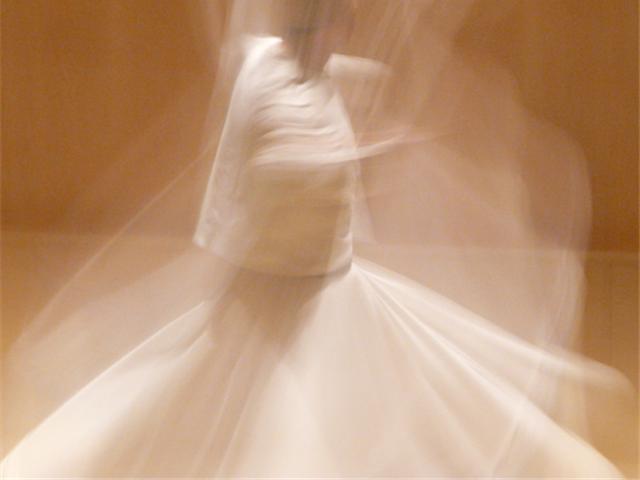Ey rastakhize nagaham, vey Rahmate bi montaha,
Ey Atashi afrookhte, dar bisheye andisheha
O sudden Day of Judgement and O Infinite Grace
O Blazestarter in the thicket of thought [you come]
Emrooz khandan amadi, meftahe zendan amadi
Bar mostamandan amadi, chon bakhshesh o fazle Khoda
With laughter, as Releaser of bondage, today, you come
Like the forgiveness and blessings of God, to the needy you come
Khorshid ra Hajeb toyii, Ommid ra vajeb toyii
Matlab toyii taleb toyii, ham montaha, ham ebteda
Veilholder of the Sun; and Proclaimer of Hope
You are the sought and the Seeker, the end and the start
Dar sineha barkhaste, andishe ra araste
ham khish hajat khaste, ham khish kardast rava
You arise in our hearts and adorn our thoughts
In prayer, it is You who are asking, and it is You too, who grant
Ey roohbakshe bi badal, vey lazate elm o amal
Baghis bahane ast o daghal, keen elat amad van dava
O Giver of vitality to the soul, beyond compare, O joy of knowledge and from action
all else are but excuses and trickery, that brought this ailment that you healed
Ma zan daghal kazhbeen shodeh, ba bee gonah dar keen shode,
gah maste hoor-ol-ein shodeh, gah maste nan o shoor ba
Engaging in trickery we see not straight, and start a feud with the innocent
one moment drunk with the beauty of the beloved, another moment drunk on bread and stew
--to be continued --
Special thanks to M. Daftari for discussions and insights into the translation.
Commentary
==========
This is the first ode to the Book of Shams, the Book of the Sun. Shams (Sun) being Molana's (Rumi's) Master and Friend (doost -- which has a special meaning in Erfan). Note that the way of evolution towards the Divine requires a master according to Sufi tradition.
Rumi starts with a tumultuous prelude: invoking the dichotomy of the Supreme Being: being the apocalypse and Infinite Grace.
Rumi calls upon and invokes the Supreme : O Apocalypse (Day of Judgement) and O Infinite Grace. He is invoking and seeking the Supreme in this ode.
he goes on to describe attributes of the Divine that are permeating outside and inside our being.
line 1 second stanza: O who has blazed a fire in the bramblewoods of thought. O who has set fire to the jungle of dry thoughts. His Presence burns thoughts and thoughts disappear in His Presence.
He also sets ablaze the convolutions and contortions of unnecessary thoughts entwined into one another. As we observe our thoughts, we can see why Rumi calls this a bramblewood of dry thoughts: we not only have many of them every second, and they do not seem to cease in ever increasing number, but they are intertwined in endless density at times. And at times there is a clearing in the forest.
Line 2: Today you come smiling, a Opener of the gates of my prison; as Releaser of my bondage you come today smiling.
Once you set fire to the thoughts bothering us, you appear to come smiling ready to release us from the bondage we have to our incessant and seemingly endless foliage of thoughts.
"you come onto the bereaved and sad, the needy and the wanting, as does the forgiveness and magnificence of God."
you come with joy and smiles to the melancholy who need it most; you bring with you forgiveness and bounty to the needy.
Line 3: You are the keeper of the curtain or veil. You control the veil . You are the veilkeeper of the Sun. You control whether it shines or not. You have made Hope a mandatory element for us. You have decreed that above all we we must have Hope.
Line 3 part 2: [matlab toyii, taleb toyii] you are the desired (object of the search), you are the seeker too. The End of things and also the Start. All things end in You and start in You.

No comments:
Post a Comment